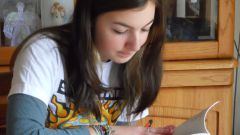You will need
- notebook;
- - fountain pen;
- - the recorder;
- - the camera;
- computer;
- literary skills;
- - communication skills.
Instruction
1
Having made the decision to be a journalist, try to get special education. Today, many universities prepare specialists for the media, but the most recognized in the country are diplomas of faculties of journalism of Moscow state University and Saint Petersburg University. For admission required to pass entrance tests in Russian language, literature, and to participate in the contest.
2
If the training at the faculty of journalism for some reason unavailable, then use the previously obtained education. Become an expert in the field of journalism with any special education; it is desirable that it be higher. As a graduate, say, in the fields of history, linguistics or law, you can get the missing knowledge and skills through practical journalistic work.
3
Consider the overall theme of their future journalistic work, determine the topics in which you feel most competent, and over which you want to work. It can be culture, science, education, social services, health care, economy and so on.
4
Prepare a list of several topics. Write two or three material which could be presented to the editor for evaluation. Of course, this will require not only skills of written expression of their thoughts and ownership of the topic. It was at this point begins the real study. Do not worry if at first the quality of the articles will not correspond to the best samples. Skill and professionalism comes with experience.
5
Select the edition you would like to work with. It can be newspaper, magazine or online publication. Write to the editor or to work with the staff, expressing his desire to work as a journalist. Make an appointment with the decision makers on the employment of workers.
6
At a meeting with the editor, let him know that your desire to learn journalism is not a momentary whim. Show your work and ask to see them. It will be good if you have suggestions on how to improve the publication.
7
Starting to cooperate with the publication, try to immediately engage in a creative process, not neglecting the most insignificant topics and subjects. Don't hesitate to ask questions of more experienced colleagues. Remember that the only stupid question is the one you didn't ask. With motivation and purpose, over time you will get skills that can make you a star, if not journalism, then, in any case, a true professional.






